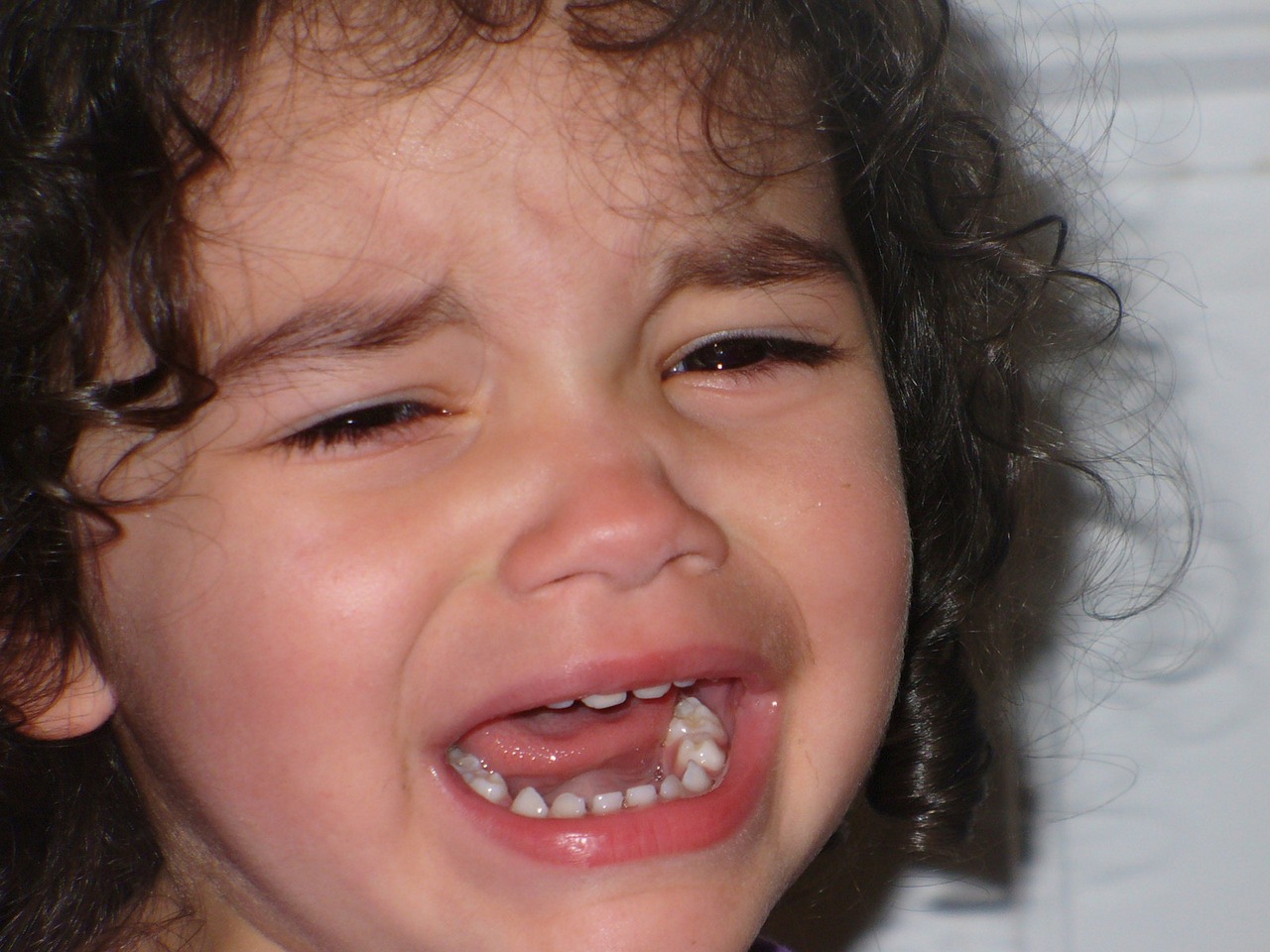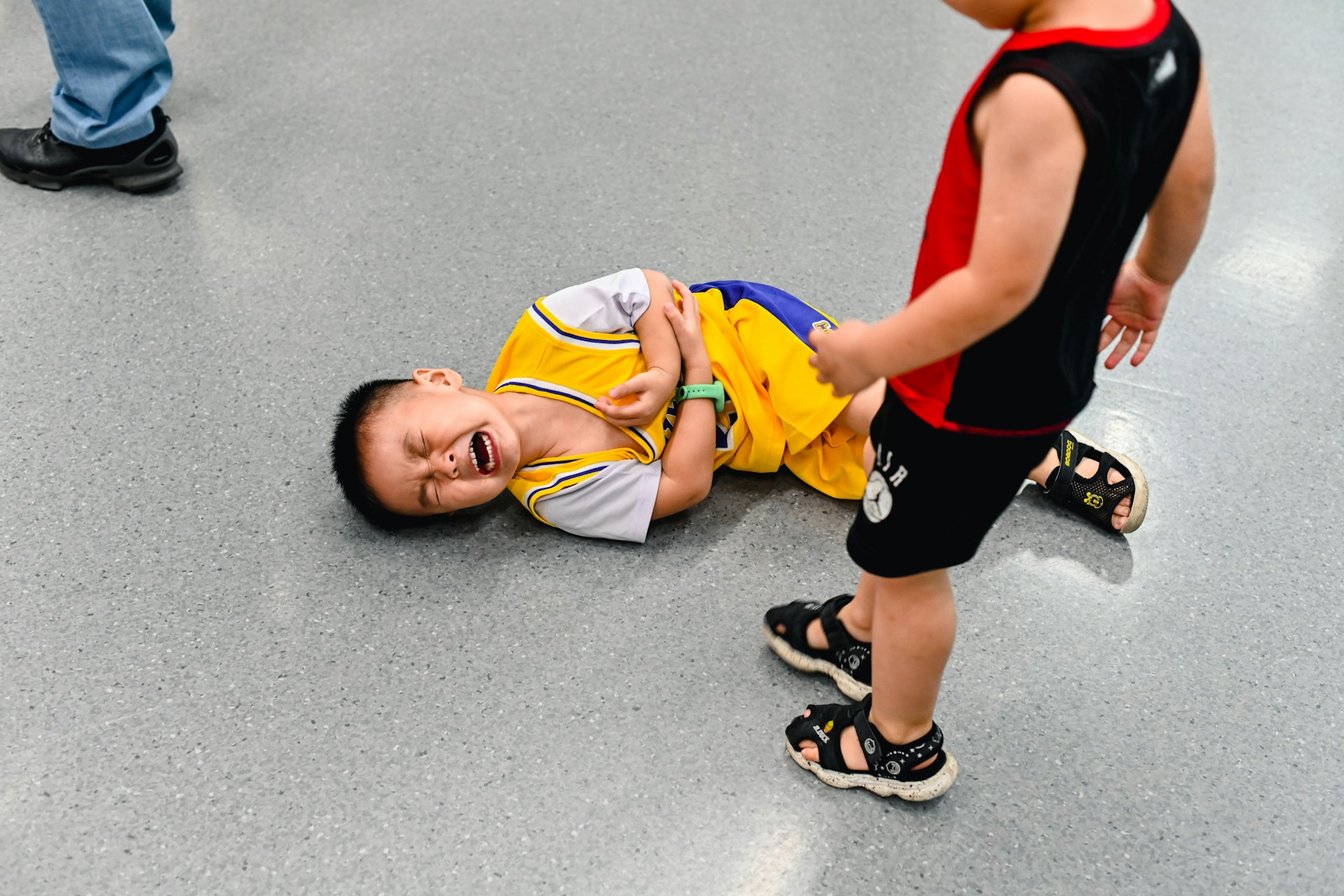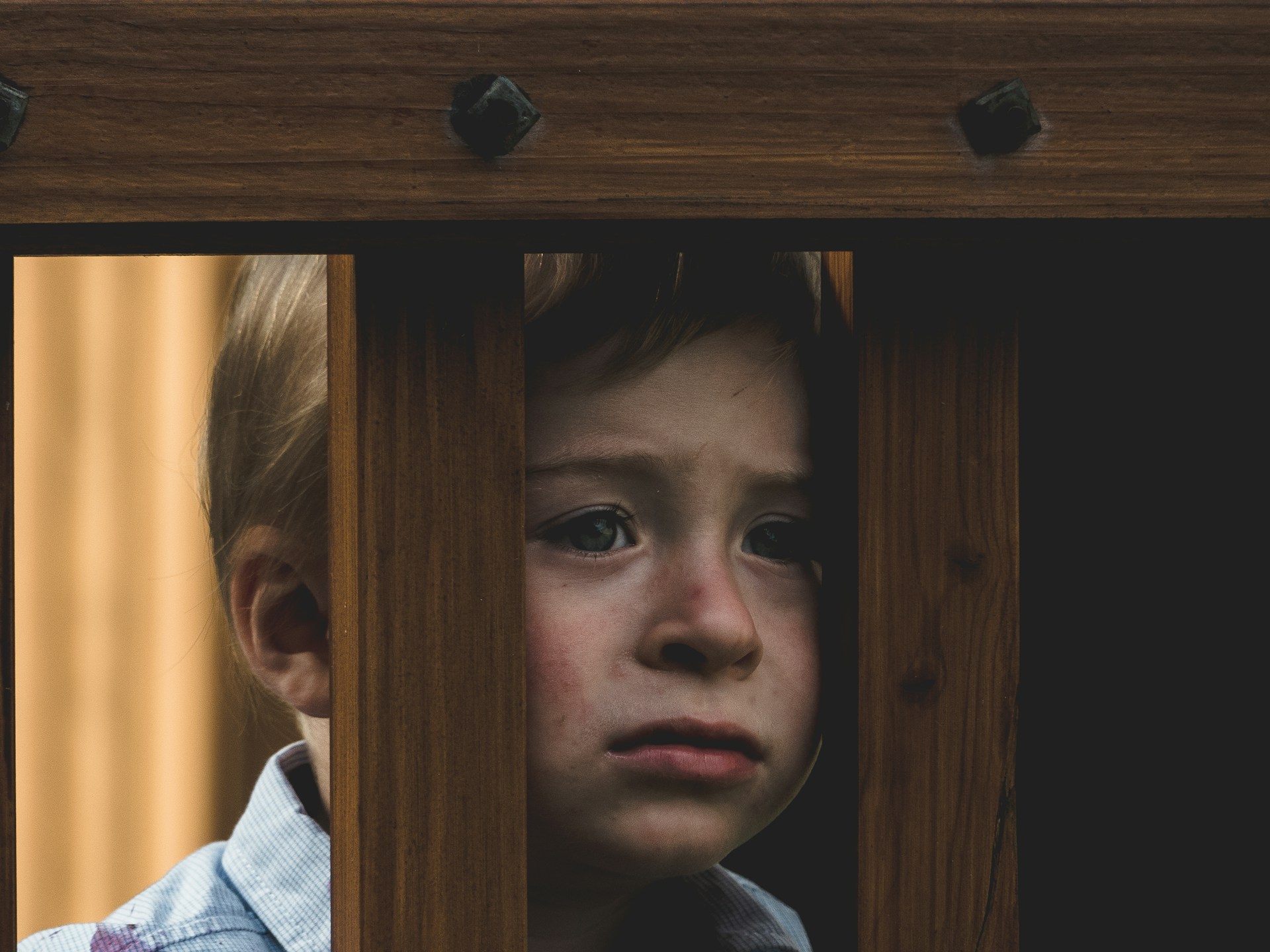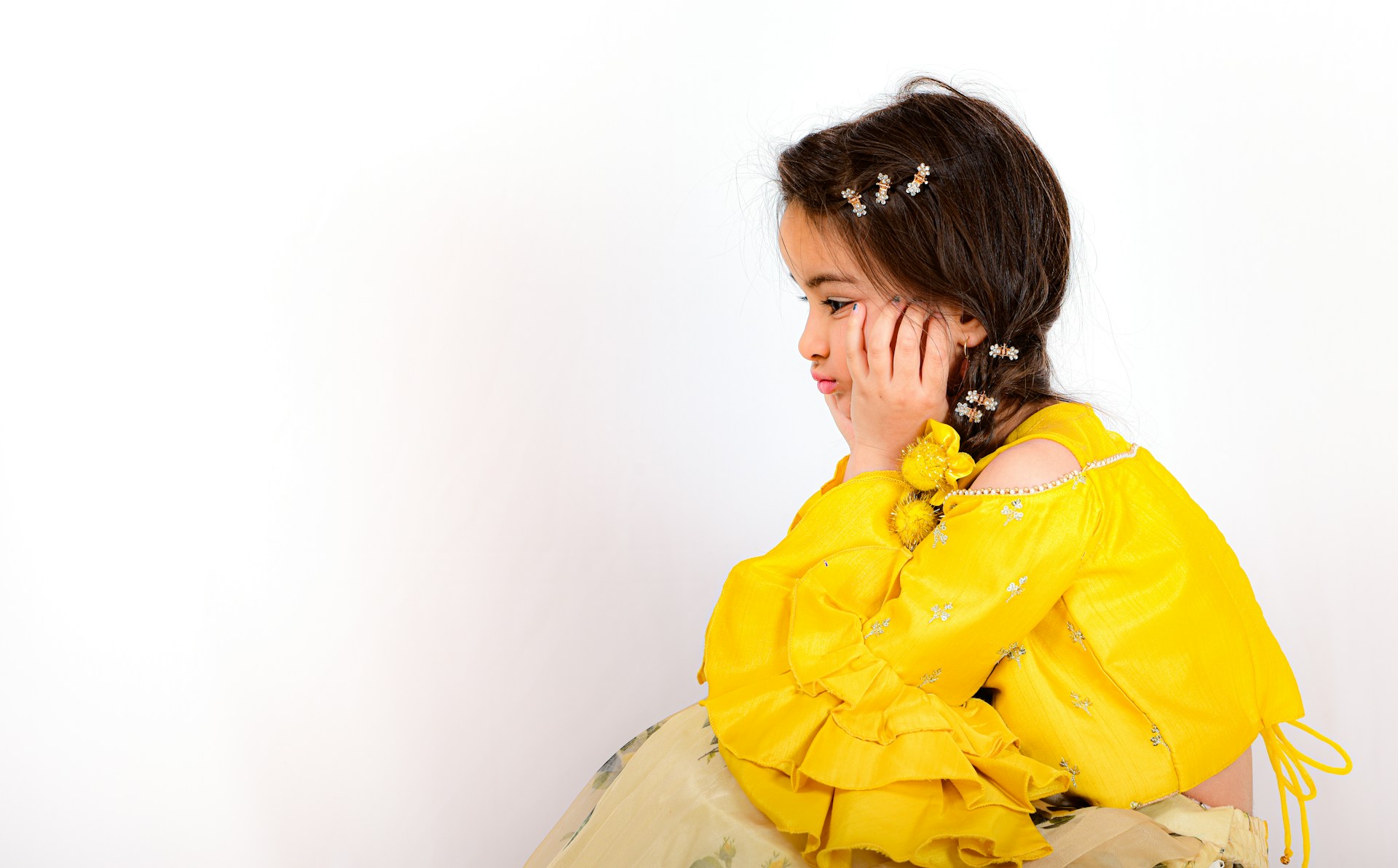If you're a new parent navigating the ropes or an experienced one looking for ways to improve your parenting style, we've got some tips on what you should and shouldn't do. We're specifically talking language - there are certain things you should NEVER say to your kid, and things you should be saying on the regular!
1. "Stop crying right now."
Listen, kids are going to cry when they're hurt or upset. Telling them to stop crying just invalidates their feelings and teaches them they should suppress their emotions. Instead, you should be helping them learn how to articulate their feelings better and reassuring them that it's okay to express sadness or frustration.
 Image by Vicki Lynn from Pixabay
Image by Vicki Lynn from Pixabay
2. "You're so lazy."
Calling a child "lazy" is one quick way to damage their self-esteem and discourage them from trying in the future. You should always be encouraging them by focusing on specific behaviours that they can change, like "Let's find a fun way to clean your room together."
 Photo by Alexander Dummer on Unsplash
Photo by Alexander Dummer on Unsplash
3. "Why can't you be more like your sibling?"
If you feel bad getting compared to someone else, how do you think your child would feel? Comparing children, especially to their siblings, is a surefire way to create rivalry and resentment. It makes them feel inadequate and develops a negative mindset of "I'm not good enough." You should be celebrating each child's unique qualities and achievements, without making any comparisons.
 Photo by yang miao on Unsplash
Photo by yang miao on Unsplash
4. "You're being so selfish."
While it's important to teach your children how to be considerate of others, calling them "selfish" when they're still learning can make them feel like bad people. Instead, try to guide them on how to understand actions have consequences and can affect others.
 Photo by Tadeusz Lakota on Unsplash
Photo by Tadeusz Lakota on Unsplash
5. "I'm disappointed in you."
Never say this to your child! It'll immediately make them feel unworthy of love or acceptance. Specifically using the word "you" makes it feel more targeted and direct too. Try to instead focus on expressing disappointment in a specific behavior, not on the child. And always try to discuss ways to improve.
 Photo by Chinh Le Duc on Unsplash
Photo by Chinh Le Duc on Unsplash
6. "You always mess up."
Using absolutes like "always" or "never" exaggerates your child's negative behaviour and can make them adopt an unhealthy mindset. Kids are going to make mistakes, and instead of making them feel bad about it, use them as opportunities to teach them how to learn and grow. Mistakes are not defining moments.
 Photo by Lucas Metz on Unsplash
Photo by Lucas Metz on Unsplash
7. "You did well, but..."
Never undermine a compliment with criticism; this only diminishes a child's accomplishments and enthusiasm. Offer praise when they've achieved something, and save the constructive feedback for a separate conversation. Keep in mind it should always be helpful and specific criticism too.
 Photo by BIPIN SAXENA on Unsplash
Photo by BIPIN SAXENA on Unsplash
8. "You're not [something] enough."
Whatever you fill that blank with, it's one way to ruin a child's confidence and lower their sense of self-worth. This is language you should never be using with your child. You should be highlighting improvements and strengths, not their mistakes and missteps.
 Photo by Thomas Park on Unsplash
Photo by Thomas Park on Unsplash
9. "I don't care."
If your child is coming to you for advice or help, responding with this simple phrase dismisses their concerns or interests as unimportant and will surely damage your relationship. Always show interest and empathy - they're coming to you because they need your help or feel comfortable with you! Even if you're busy or not particularly interested, it's important to show that you care by paying attention.
 Photo by Vitolda Klein on Unsplash
Photo by Vitolda Klein on Unsplash
10. "Because I said so."
Using this kind of language immediately shuts down conversations and leaves no room for open discussion. While sometimes it's necessary to assert authority, it shouldn't be done in this way. Always try to provide thoughtful reasons for your decisions so that it fosters understanding and respect.
 Photo by Joseph Gonzalez on Unsplash
Photo by Joseph Gonzalez on Unsplash
1. "I love you."
These three simple words have the biggest impact. Expressing your love regularly reinforces a child's sense of security and belonging. It's important that they know your love isn't conditional on their achievements or current behaviour. They should feel loved and know that they are loved at all times.
 Photo by S&B Vonlanthen on Unsplash
Photo by S&B Vonlanthen on Unsplash
2. "I'm proud of you."
Achievements, big or small, should always be celebrated. It helps boost your child's self-esteem and motivation, helping them to understand the benefits of reaching their goals. It's also important that you celebrate the progress and the steps taken, not just the outcome.
 Photo by Jonathan Borba on Unsplash
Photo by Jonathan Borba on Unsplash
3. "I believe in you."
As children learn to take their steps in the world, it can come with fear and uncertainty. To help them realize you've always got their back, these four words encourage them to take risks and face new challenges.
4. "You can talk to me about anything."
Having a safe space and someone you can rely on are two important things that everyone needs. You should always make your child feel comfortable with expressing their thoughts and feelings with you, ensuring that there won't be judgment or criticism coming from your end as they share what's going on.
 Photo by Kelly Sikkema on Unsplash
Photo by Kelly Sikkema on Unsplash
5. "It's okay to make mistakes."
Life is full of mistakes, and it's important kids know that too! Teaching children that failure is a part of learning and growing helps reduce that fear of making mistakes to begin with. It encourages them to develop a perspective where setbacks are seen as opportunities to grow, and not just hindrances.
 Photo by Gabe Pierce on Unsplash
Photo by Gabe Pierce on Unsplash
6. "How did that make you feel?"
If you notice your child struggling to come to terms with their emotions, talking it through with them can be extremely helpful. Asking them about their feelings and genuinely listening is one way you can validate their experiences and show that you care about their side of things.
 Photo by Eye for Ebony on Unsplash
Photo by Eye for Ebony on Unsplash
7. "You worked really hard on that."
Praising your child's effort on a task or assignment instead of focusing on the result teaches them the value of hard work and persistence. After all, it's about the journey, not just the destination! It helps them build a growth mindset where they can understand effort leads to improvement.
 Photo by M.T ElGassier on Unsplash
Photo by M.T ElGassier on Unsplash
8. "I'm here for you."
Everyone has their down days, and during these times, we could all use a shoulder to lean on. Reassuring your child that you'll always support them and be there for them is huge. Especially during rough times. This gives them the stability and bravery they'll need to face their problems head on.
 Photo by Xavier Mouton Photographie on Unsplash
Photo by Xavier Mouton Photographie on Unsplash
9. "I'm sorry."
As parents, you can make mistakes too! Own up to your mistakes and apologize for them - it teaches your kids humility and responsibility. It sets a positive example on how to handle errors and mend relationships to keep them strong.
 Photo by Mokili Kokende on Unsplash
Photo by Mokili Kokende on Unsplash
10. "What do you think?"
Encouraging your child to share their thoughts and opinions shows you value their input and helps develop their critical thinking and decision-making skills.









